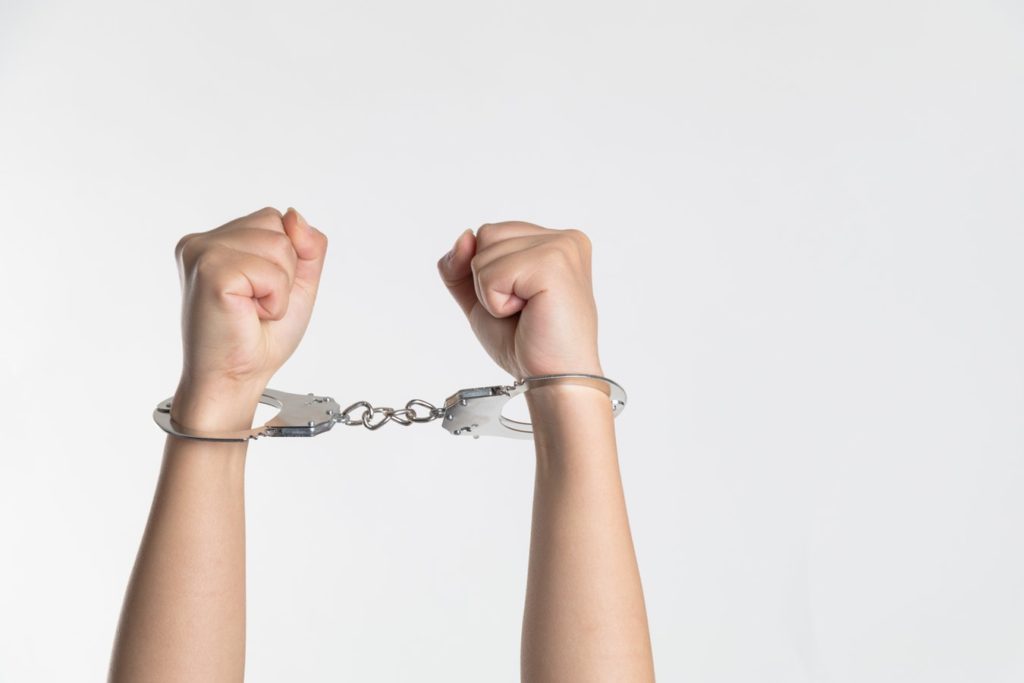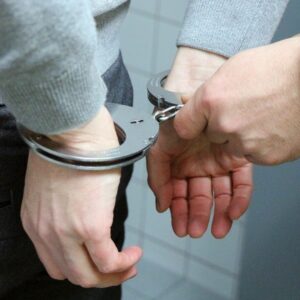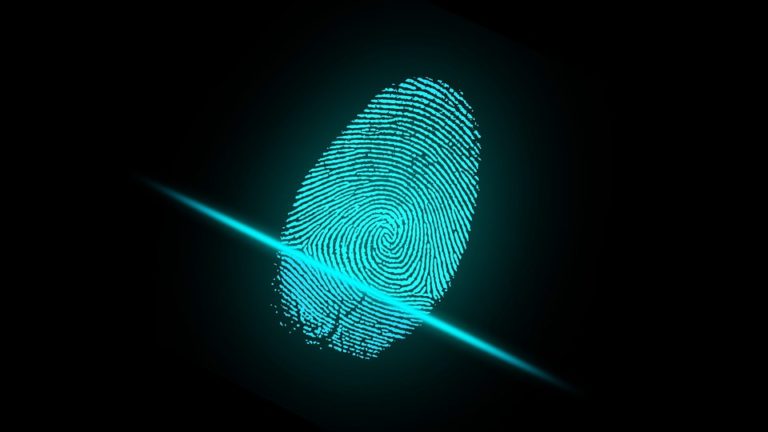Flowers Law Group – Criminal Lawyer in Suffolk County
At Flowers Law Group, we’re dedicated to giving you the representation and legal justice you need. We have covered many areas of practice and can help you in regards to criminal defense, civil litigation, and family law. If you find yourself in legal complications and need guidance, our criminal lawyer in Suffolk County can help you in a variety of ways.
Larry E. Flowers, Esq.
Larry Flowers is a criminal and civil trial attorney that has taken several cases to favorable verdicts; including but not limited to, DWI, assault, sexual assault, criminal contempt, landlord/tenant, custody and support matters and asset forfeitures. Larry Flowers has been successful in having criminal charges dismissed after conducting pre-trial hearings and on his motion practice. Mr. Flowers has counseled clients through the drug court programs, ultimately avoiding criminal convictions and helping them understand and gain treatment for their addictions. He has developed a style of his own that has proved very effective with both Judges and Assistant District Attorneys. His clients have come to know that he will analyze their situations with an experienced and critical eye and that he will construct the most persuasive and solid argument possible. Larry Flowers’ promise of integrity, respect and professionalism has helped forge a solid reputation with his clients and in the courts which he practices.Fill Out This Form For A Criminal Lawyer in Suffolk County
Recent Blog Posts From A Criminal Lawyer in Suffolk County
Criminal Mischief
Criminal mischief is a commonly used term in criminal cases, but what exactly does it mean? Simply put, criminal mischief is any time someone damages another person’s property without the owner’s permission. Depending on the State, criminal mischief can also be called vandalism, damage to property, or malicious mischief. If you are in need of services provided by a criminal lawyer in Suffolk County then you should contact Flowers Law Group! We have the experience and desire to help you get favorable outcomes for you criminal law cases!

Intent:
- Criminal mischief is intentional, not accidental.
- It does not matter if you specifically intended to cause any form of physical damage, what matters is if you intended to participate in actions you knew, or should have known would cause property damage.
Damage:
- The amount of property damage can be minor or significant, it does not matter.
- Criminal mischief does not include stealing property, only damaging and breaking property without the owner’s permission.
- Some examples of criminal mischief are graffiti painting, breaking a car door, or removing an emergency exit sign. Introducing a virus to someone’s computer is also considered criminal mischief in some states.
Recklessness:
- Criminal mischief can also be committed recklessly.
- Reckless acts are not accidental, but instead are done with conscious disregard for actions and consequences, resulting in property damage.
Criminal mischief crimes can fall under misdemeanors or felonies. Felonies can result in a year (or more) in prison, while misdemeanors can result in up to a year in jail.
- Jail or Prison:
- If property damage is only a few hundred dollars, sentences would only be around one to two months.
- Felony sentences where lives were at risk could result in five (or more) years.
- Fines:
- First-time offenders would most likely pay a fine if the damage was not substantial, and no lives were at risk.
- Misdemeanor fines can be a few hundred to one thousand dollars.
- Felony fines can be over five thousand to ten thousand dollars.
- Probation:
- The court could potentially issue probation instead of jail time or fines. The court would issue specific terms such as to maintain employment and meet with a probation officer regularly.
- Restitution:
- Paying the owner of the damaged property.
- This gets paid directly to the property owner unlike fines, which go to the State.
Criminal Lawyer in Suffolk County
Legal matters can be a stressful and difficult time, which is why it’s important to have a skillful and experienced attorney by your side. Here at Flowers Law Group, we are dedicated to providing you the representation and legal justice you need. If you find yourself in legal complications, don’t hesitate to contact our criminal lawyer in Suffolk County today.
Charged With A Crime Do’s And Dont’s

It can be very overwhelming to be or have a loved one charged with a crime, and in situations like these, an individual must be aware of do’s and don’ts, so they don’t worsen the case. If you or someone you know finds themselves being charged with a crime, it is best to find an attorney to support you through this case. Our criminal lawyer in Suffolk County at Flowers Law Group P.C. covers many areas of practice and can help you in various ways.
Charged vs. Convicted With Our Criminal Lawyer in Suffolk County
Being charged with a crime means the government has accused an individual of a crime and, by law, is innocent. However, being convicted of a crime means an individual has pleaded guilty or been found guilty after the trial.
Charged With A Crime Do’s
If charged with a crime, some do’s include:
- Please speak to our criminal lawyer in Suffolk County before being charged or accused.
- Bond out of jail.
- Listen and do absolutely everything your attorney tells you to do.
- Gather any evidence or important information that will help your case.
- Be honest with your attorney. Lying will not help you or the case.
- Attend court sessions on time and well dressed.
- Do take care of yourself. Eating and sleeping properly will help you focus on your case.
Charged With A Crime Dont’s
It’s important to be aware of things that shouldn’t be done because they can potentially worsen the situation. Some don’ts include:
- Don’t speak to any law enforcement like police without your attorney present.
- If taken in custody
- Don’t talk about your case on the jail phone.
- Avoiding speaking to any cellmates about your case.
- Don’t speak to witnesses or victims about the case without speaking to your attorney first.
Contact Our Criminal Lawyer in Suffolk County Today!
Are you looking for a criminal attorney for you or a loved one? Flowers Law Group P.C. understands how difficult it may be to be dealing with legal matters, and we are here to help you. Our criminal lawyer in Suffolk County can give you the guidance to resolve any legal issues or complications. Please schedule a consultation by giving us a call or visiting our website!
What Are White Collar Crimes?
Law is a complicated matter. Our attorneys are skilled and have experience in the area of criminal defense. When it comes to crimes, such as white-collar crimes, innocent individuals can sometimes end up in jail, and their future may be ruined. If you have been charged with a white-collar crime, you must contact a criminal lawyer in Suffolk County who will help protect your rights and future. Contact Flowers Law to schedule an appointment today!
What are White Collar Crimes?

White Collar Crimes are nonviolent crimes that are committed for financial benefits. A person usually commits a white-collar crime to avoid losing money, property or secure a business or personal advantage. Some examples of white-collar crimes include:
- Insider Trading – This is when the trader possesses non-public information that gives them an advantage in the market.
- Embezzlement – This is a crime of theft. It can either be something as simple as an employee taking a few dollars from the cash drawer or as complex as transferring millions of dollars from the company’s account to the embezzler’s account.
- Identity Theft and other Cybercrimes – Two of the most widespread computer crimes include identity theft and hacking, considered white-collar crimes.
- Money Laundering involves funneling cash through many accounts and eventually entering into the businesses. The money gets mixed in with the revenues, and it becomes difficult to identify the crime, the source of where the money came from.
Classifying White Collar Crimes
White-collar crimes are commonly divided into two categories: Individual Crimes and Corporate Crimes.
- Individual Crimes – These are financial crimes by a group of individuals or one individual. This category includes crimes such as identity theft, hacking, Ponzi schemes, and much more.
- Corporate Crimes – These are white-collar crimes that occur at the corporate level. For example, insider trading and money laundering are usually conducted at the corporate level.
Flowers Law – Criminal Lawyer in Suffolk County
At Flowers Law, we understand how difficult and stressful it can be to deal with your legal matters. Our criminal lawyer in Suffolk County specializes and criminal defense. If you or anyone you know is looking for help to protect their rights and future, contact us today! Click here to schedule an appointment today!
Is Criminal Mischief A Serious Crime?
Criminal mischief is defined as any damage to property that does not rise to a felony or misdemeanor level but is still illegal. Criminal mischief is punishable in most states, with one year in jail and a fine. Many people believe that criminal mischief must be more severe than just damaging another person’s property, even if it isn’t that person’s permanent property. If you’re looking for a suffolk county criminal defense lawyer, contact Flowers Law NY today!
They are surprised to find that criminal mischief can be destroying a tire belonging to someone who lives in the same neighborhood, simply because they are tired of looking at it or hearing it. This type of criminal mischief is generally called “malicious pranks.” Most people consider this behavior childish and senseless. People often do not consider this to be a serious offense, and it isn’t. However, people can still get in trouble for committing criminal mischief. If someone commits pranks that result in damage to personal property or injury to another person, they can face felony charges even if the “prank” itself wasn’t very harmful. Criminal mischief is not usually intended as a serious crime, but there are times where it can become one.
Flowers Law NY

This is an example of how criminal mischief affects people differently depending on their intent and what is done. Some forms of criminal mischief are more harmful than others, and the consequences vary widely for this charge. A prankster with a harmless motive might receive probation or house arrest, while a vandal with malicious intent might spend time in jail or face fines. Visit our suffolk county criminal defense lawyer today to learn more about how we can help you!
If you’re thinking about committing criminal mischief, this is something to keep in mind. Again, usually, it’s not a very serious charge. And it will be seen as such by the majority of your peers and the legal system. However, if you go to extremes or have a history of causing trouble, the repercussions for committing criminal mischief will most likely be more severe. Before engaging in this type of behavior, it’s best to weigh all your options carefully. If you’re unsure what consequences you might face, contact your local police department. Or speak to an attorney that specializes in criminal law.
Flowers Law Group – Suffolk County Criminal Defense Lawyer
Criminal mischief is a minor charge, in general. However, there are cases in which criminal mischief becomes a more severe crime. In those instances, the consequences become much harsher. If you have made up your mind about using your powers of criminal mischief, make sure you fully understand what type of crime it is before going through with it. If you’re looking for a suffolk county criminal defense lawyer, contact Flowers Law NY today!
Identity Theft
What makes identity theft scary and unique at the same time is that just about anyone can fall victim to its dastardly repercussions. Occasionally dismissed by some, identity theft is a crime that needs to be taken with the utmost seriousness. In order to prepare yourself for this potential theft, you need to better understand how these thieves accomplish their goals. It’s also imperative that the general public is aware of the damage that is done through identity theft.
In this piece, we will be focusing on each of these facts to better prepare the reader for potential identity threats. For questions or concerns, contact our criminal lawyer in Suffolk County at the distinguished practice of the Flowers Law Group.
What Are The Concerns?
Essentially, identity theft is a criminal activity in which hackers deviously obtain pertinent information that relates back to an unsuspecting individual. These criminals are then given the freedom to use this information in whatever way they desire. Usually, this info is used for the means of stealing money and draining your bank accounts. Hackers can use your information to bury you in credit card debt, freely open accounts under your name, and even receive medical treatment from your own health insurance.
What makes this act of crime highly unsettling is that the possibilities are predominantly endless. What’s to stop a hacker from giving your name and information to the police during an arrest? Wrapping you up in a situation that you were completely uninvolved in and are now held as a potential suspect.

How Can I Determine If I’m At Risk?
While being aware of the threats that identity theft imposes is crucial, simply knowing of the criminal act isn’t enough to protect you from being a potential victim. Naturally, your best course of action is to ensure that all of your information is under the tightest security. Anything from passwords to social security numbers, don’t allow anything to escape from your security blanket. Staying consciously aware of your surroundings is also a huge factor, thieves may consider looking over your shoulder at the ATM or while you’re on your laptop at the coffee shop.
Criminals will do anything to get what they desire, even sifting through your dumpster just to find anything they can use against you. Other than security, you can also stay focused on potential hints that may mean a hacker has your info. Your criminal lawyer in Suffolk County suggests keeping the following in mind:
- Mysterious and unexplained draws from your bank account.
- Receiving calls from debt collectors that don’t involve you.
- Regular monitoring of your bank account and credit cards.
- Unfamiliar charges on your accounts.
- You don’t receive your regularly scheduled bills or mail.
If you feel that you may be at risk for identity theft, contact your local criminal lawyer in Suffolk County and explore your options. Identity theft is very real and you’re not exempt from being at risk. Make sure to take the necessary steps to keep you and your loved ones’ information safe from harm.
Criminal Trespassing
Entering another person’s property without any sort of consent is commonly referred to as criminal trespassing. In the state of New York, the laws for criminal trespassing vary depending on the degree of the offense. The degrees range from first, second, and third, with criminal trespass in the first degree being regarded as the highest possible violation. For further in-depth analysis, contact our criminal lawyer in Suffolk County at Flowers Law Group who will be able to explain each violation with explicit detail.
Criminal Trespass in the First Degree
Known as a maximum offense for this type of crime, criminal trespass in the first degree, and it is typically is punishable by a possible two to a seven-year prison sentence. Potential alternatives to jail time may include the following:
- Mandatory probation time.
- Probation along with jail time.
- Mandatory community service.
- Potential fines.
- A conditional discharge.
In order to fill the qualifications for engaging in first-degree criminal trespass, the individual committing the crime must also possess an explosive or deadly weapon on their person. Other weapons can include firearms such as a rifle or shotgun. This is in addition to knowing that they are unlawfully entering a property without the consent of the property owner. Criminal trespass in the first degree is classified as a class D felony.
Criminal Trespass in the Second Degree
Trespass in the second degree is downgraded from a felony to a class A misdemeanor. However, criminals are still subject to jail time (up to a year) without a mandatory minimum. Alternative punishments for criminal trespass in the second degree may include the following:
- Mandatory probation time.
- Probation along with jail time.
- Mandatory community service.
- Potential fines.
- A conditional discharge.
What further constitutes carrying out this crime is the criminal knowingly entering a dwelling unlawfully. Other eligibility for criminal trespass in the second degree can be found here or you may simply contact our criminal lawyer in Suffolk County and ask.
Criminal Trespass in the Third Degree
Finally, criminal trespass in the third degree is considered a class B misdemeanor. Since this is the lowest degree, prior criminal history may not play quite as strong of a role in inflicting punishment. Criminals may not receive up to 90 days in jail, but they may be forced to pay a fine or receive probation. Similar to the prior violations, the individual in question must also be entering the location without the consent of the property owners. Willingly engaging in criminal activity such as trespassing is a violation that should be held with the utmost regard. Understanding what constitutes breaking this law is essential for understanding what needs to be done to abstain from committing the crime. Contact our criminal lawyer in Suffolk County at Flowers Law Group for further questions regarding New York laws for trespassing.
How to Deal with Squatters on Your Property – Ask Our Criminal Lawyer in Suffolk County
The process of removing a squatter from your property can be tricky. Don’t trust just anyone to represent you in these matters. Contact Flowers Law Group, a criminal lawyer in Suffolk County, to begin the process today!
Adverse Possession, what is it?
Adverse Possession aka Squatter Rights is a legal term for occupying someone else’s property. A squatter must live on the property openly and without permission for at least 10 continuous years to claim adverse possession in New York. However, in New York, the laws differ. A squatter is granted adverse possession after just 30 days of unwelcome occupancy! Once the adverse possession period (whether 30 days or 10 years) has passed, the owner must go through the legal eviction process to remove the squatter. This is a lengthy and expensive process! And until it is completed, they have the legal right to continue living there.
How can you protect yourself?
- Ensure any tenantless properties are locked up and well-secured.
- If you have a vacant property, check it frequently – especially if you are in New York City! If you’re an absentee landlord, hire a property manager or seek out a family member/friend in the area to check on your behalf.
- Know your local laws
- Contact a criminal lawyer in Suffolk County to receive fair and honest representation.
What action can you take?
- Contact authorities
If you discover a squatter, it is important to immediately contact police. Timing is crucial, and the longer they stay there the more difficult it may be to evict. If the police find this to be a civil matter, then your next step is to begin the legal eviction process.
- Serve the proper forms that you have obtained
To file an eviction notice, there are 3 things you will need. They include:
- a Notice of Petition
- a Petition to Recover Possession of Real Property
- an Affidavit of Service
The Notice of Petition informs the tenant that the case has been filed along with the court date and location that has been set. The Petition to Recover Possession will explain the reason for this case is initially filed. The Affidavit of Service indicates how the squatter has been served (mail or hand delivery). Take the completed forms to court to file within 3 days of serving initial notice. If they still haven’t left after being served, you will have to attend court hearings.
- If they still won’t leave, contact the sheriff.
If you’ve won your lawsuit and they still will not vacate the property, contact a sheriff or police officer to remove them.
Local Criminal Lawyer in Suffolk County
If you are a landlord or tenant, in need of representation contact Flowers Law Group, a criminal lawyer in Suffolk County, to explore your options! Dealing with legal matters can be difficult and stressful. Let us walk you through this process every step of the way.
Contact A Criminal Lawyer in Suffolk County
We can give you the help you need today. Whether you’re from Huntington, Northport, or Central Islip, at Flowers Law Group, our criminal lawyer in Suffolk County can give you the legal help you need with any issue you may have. Contact us today to start a consultation.



